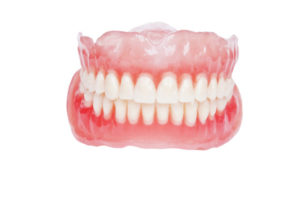Inflammation of the gums is a rather common oral cavity pathology, cured in time and has no serious health consequences, but several complications may arise when inflammation of the gums affects the elderly.
Inflammation of the gums: elderly at risk
When age advances the immune defenses tend to fall, exposing older people to more frequent inflammations and infections, including the oral cavity.
To this we could also add a greater neglect of oral hygiene, a condition that facilitates the formation of plaque and tartar, with all that follows.
An additional threat is the side effects of taking drugs for other types of diseases.
The good health of mouth and teeth it is an important variable in the quality of life of each of us, especially when we face the third age and other ailments could affect the overall well-being. A healthy smile is an important ally for social life and for feeling comfortable in everyday life.
What dangers does an inflammation of the gums conceal?
For an elderly person to contract agum infection can lead to serious complications that can even endanger your life.
Pulmonary infection
The proliferation of bacteria present in the mouth can go beyond the oral cavity and hit the upper respiratory tract. A condition that can lead to severe lung infections. The presence of plaque and tartar increases the likelihood of contracting ad ingestis pneumonia, which is an infection caused by ingesting the same saliva. Oral secretions, loaded with bacteria, can transfer the infection to the lungs too.
Cardiovascular diseases
Inflammation of the gums at an advanced stage also compromises blood circulation. In fact, inflammatory cytokines that cause the formation of atherosclerotic plaques are introduced into the blood, a process that has serious consequences for the cardiovascular system, with the risk of pathologies such as myocardial infarction, stroke, ischemia.
Subjects at risk
There are older people who are considered to be at higher risk for gum inflammation than others, they are people with serious diseases such as: Alzheimer’s, senile dementia, Parkinson’s disease …
These are diseases that also determine physical and cognitive limitations, conditions that impact on the ability to maintain a constant daily hygiene.
For older patients, more frequent dental checks should be planned, at least one specialist visit every six months. In this way the dentist can proceed with a professional scaling, to avoid the risk of inflammation of the gums and other oral cavity pathologies.
If the patient is not cooperative, dental treatments can be performed in conscious sedation. The patient will not feel any discomfort or pain while remaining alert and continuing to interact with the dentist.

















